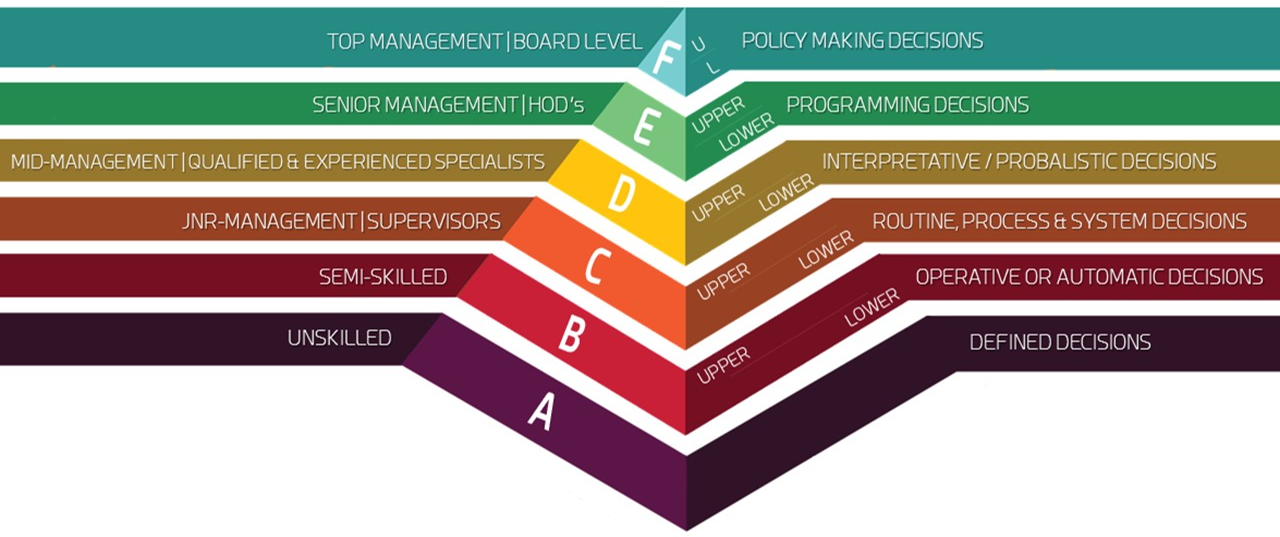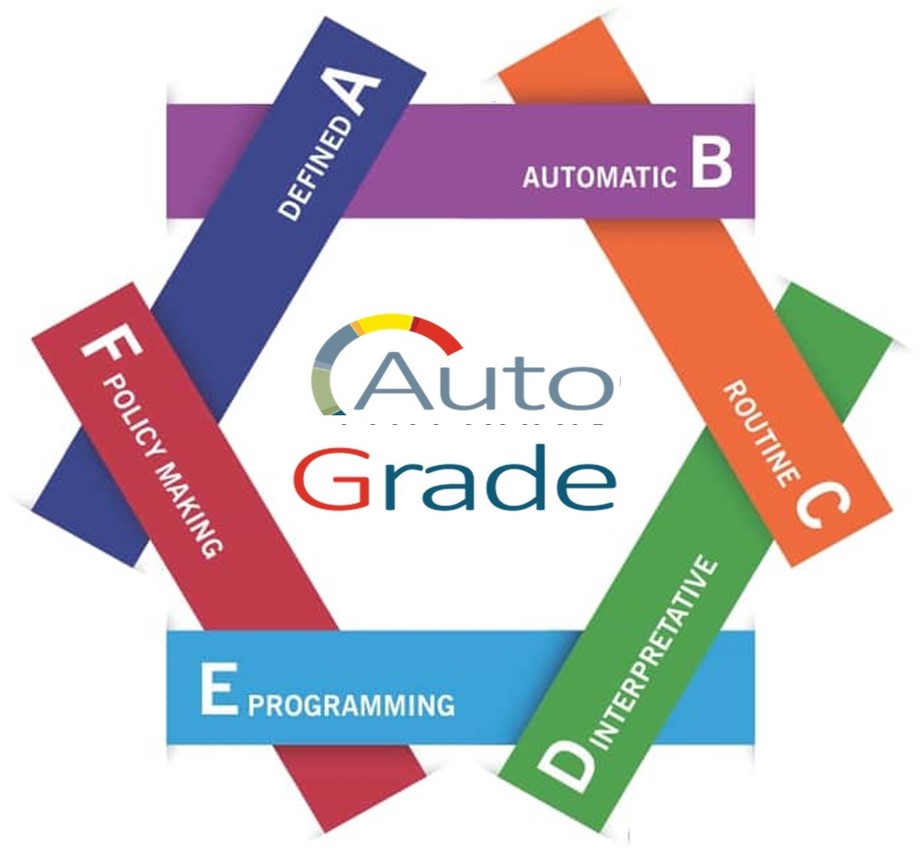An overview
We use the Paterson Decision Band Method (DBM) for job grading and evaluation. It is an effective method of objectively evaluating the worth of a job to an organization. It serves as the basis for comparing and contrasting jobs. DBM determines the value of a job to an organization based on its level of responsibility. Responsibility is measured by the decision-making requirements of the job. This method is a logical and equitable way in which to compare jobs within an organization, as all jobs require incumbents to make decisions.
Why do we use the Paterson methodology?
The Paterson Job Grading System is a method where jobs are evaluated based on pre-defined criteria. It analyses decision-taking in job tasks and categorises jobs into six groups that are graded and grouped into two to three sub-grades. The Paterson is adaptable to any industry/environment and country and is the chosen methodology in South Africa; Sub Sahara Africa and internationally.

Why job grading?
Job grading allows the employer to empirically demonstrate rationale of importance through grade outcomes including, the value of the position (offering different levels of pay). It involves determining the level of complexity, decision-making, and skills required for each job, which is then categorised accordingly. Job levelling helps candidates and employees understand exactly what’s expected of them in a particular role, how they fit into an organization, and what they need to do in order to get a promotion. Job levels are super important — you can’t build the job title until you know what the needs of the organization are.
Key areas of job grading
• Principles are not complex & are usually easily understood, communicated & implemented.
• All roles within a business are evaluated using the same methodology and aligned terminology.
• Profiling/Architecture.
• Organogram alignment.
• Job Evaluations/Grading.
• Accommodating broad banding & multi-skilling / upskilling.
• Evaluation of specialist roles as effectively as non-specialist roles.
• The role (Position) & not the person is evaluated (mitigates subjectivity)
• Job Descriptions are aligned across ALL Companies within the Group (Consistency is key)
• It assists in illustrating the competitiveness of organisational pay scales against the market..
Once grading is completed.
• Incorporates sustainability and succession planning including career path planning, and ROI (For both Employees and Employers)
• It has become employers’ prerogative to ensure sustainability not only through conducive business practices but also by strategically incorporating Broad-based Black Economic
Empowerment, Skills Development and Employment Equity.
• Recent amendments to the Employment Equity Act (No. 55 of 1998) illuminate this focused shift towards equitable working conditions particularly referring to income differentials.
Need More Information?
Email: moreinfo@powerassessments.com

